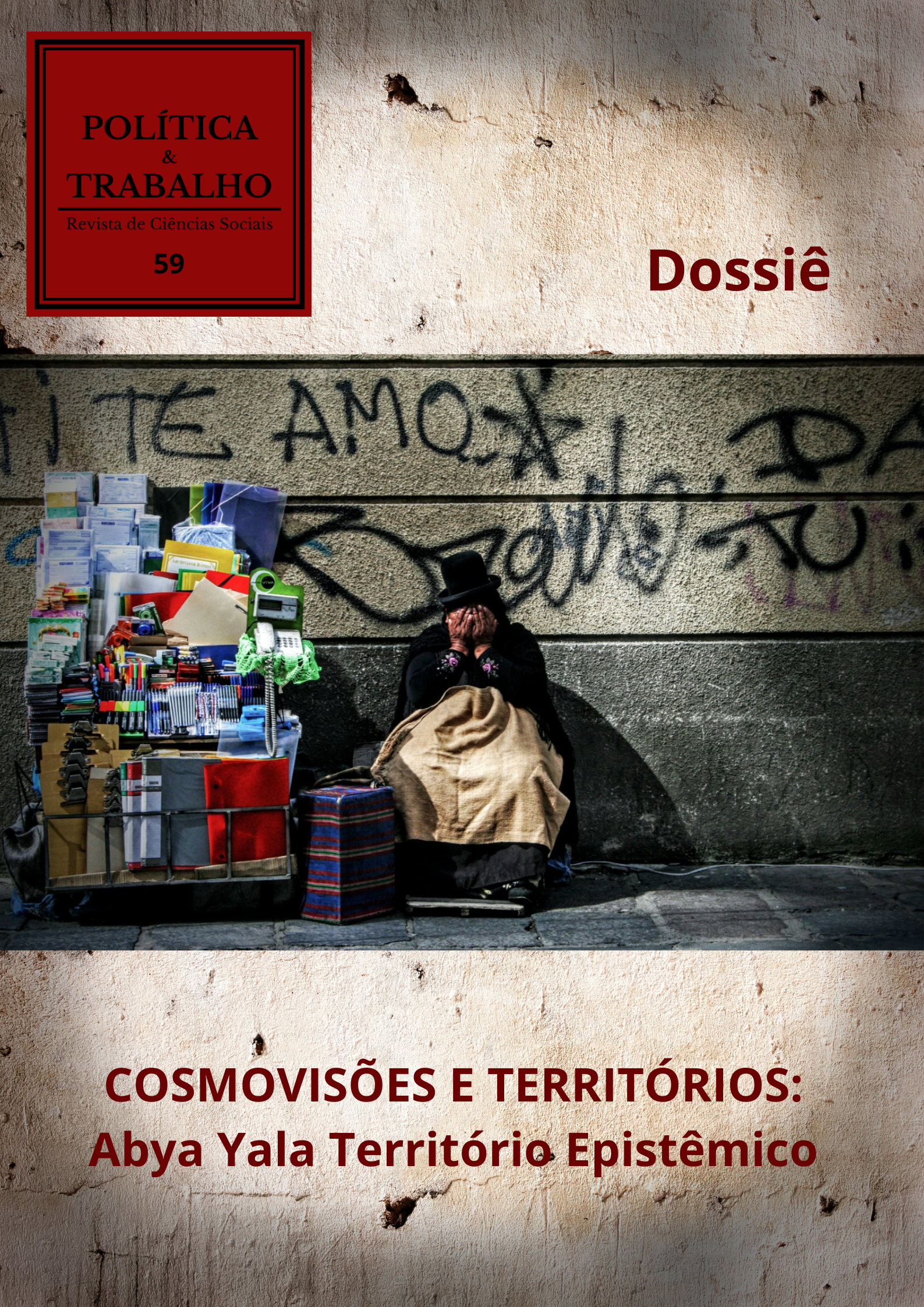BEYOND “OUR AMERICA”
Abiayala, Amefrica Ladina, and Our Afroamerica as Critical Geo-Historical Categories
DOI:
https://doi.org/10.22478/ufpb.1517-5901.2023v1n59.66444Resumo
If Jose Marti coined the concept Our America as a key construct in the invention of Latin America as a continent, here we are proposing two geo-historical categories with the aim of decolonizing the spatial and temporal imaginary: Our Abiayala from Native American feel-thinking and Our Afroamerica from Afro-descendant feel-thinking. Our Afroamerica is a translocal territory that crosses over and transcends national borders throughout the Americas, while composing those spaces. Its historical universe and its spaces of culture and politics mark a geography extending from South to North, sketching the length and the width of the routes of enslavement and resistance, from Argentina to Canada, transgressing the –imaginary as well as material— ramparts of the Rio Grande, that separate Our America from the Northern Colossus. On that key, Our Afroamerica includes the Afro-Latin American histories and cultures from the Mexican North to the Patagonia, as well as the Afro-Latinx ones that exist in the United States, thus composing (together with the Afro-North American spaces, in themselves a montage of the cultures of Africanity) a vast and diverse historical archipelago that we denominate Afro-American Diasporas. The main argument of the article is that Our Abiayala and Our Afroamerica constitute critical geo-historical categories to decolonize our collective imaginaries and engender modes of re-identification of self, history, and future horizons, which are key in the new wave of antisystemic movements. The monograph will layout both categories but will focus in Our Afroamerica.
Downloads
Publicado
Versões
- 22.11.2024 (2)
- 19.01.2024 (1)
Como Citar
Edição
Seção
Licença
Copyright (c) 2024 Política & Trabalho: revista de ciências sociais

Este trabalho está licenciado sob uma licença Creative Commons Attribution-NonCommercial 4.0 International License.
DIREITOS DE AUTOR: O autor retém, sem retrições dos direitos sobre sua obra. DIREITOS DE REUTILIZAÇÃO: A Revista de Ciências Sociais - Política & Trabalho adota a Licença Creative Commons, CC BY-NC atribuição não comercial conforme a Política de Acesso Aberto ao conhecimento adotado pelo Portal de Periódicos da UFPB. Com essa licença é permitido acessar, baixar (download), copiar, imprimir, compartilhar, reutilizar e distribuir os artigos, desde que para uso não comercial e com a citação da fonte, conferindo os devidos créditos de autoria e menção à Revista de Ciências Sociais - Política & Trabalho. Nesses casos, nenhuma permissão é necessária por parte dos autores ou dos editores. DIREITOS DE DEPÓSITO DOS AUTORES/AUTOARQUIVAMENTO: Os autores são estimulados a realizarem o depósito em repositórios institucionais da versão publicada com o link do seu artigo na Revista de Ciências Sociais - Política & Trabalho.





